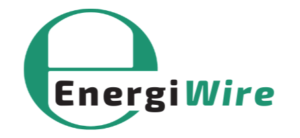Challenges Facing Southeast Asia’s Clean-Energy Startups
Southeast Asia’s clean energy startups, such as Vietnam’s SmartSolar and Indonesia’s Swap Energi, are experiencing growth yet are increasingly hindered by diminishing government backing and evolving global investment patterns. Funding reductions from both the U.S. and regional sources, compounded by economic uncertainty and geopolitical shifts, are complicating the ability of these renewable startups to secure the long-term financing necessary to expand their operations. Despite these obstacles, industry founders assert that local demand continues to be robust, and support from European development agencies is assisting in sustaining progress, although the journey toward profitability is becoming more challenging.
SmartSolar Secures Funding Amidst Challenges
In early March, SmartSolar, a renewable energy startup focused on the installation and management of rooftop solar panels, announced it had raised $1.85 million in its inaugural venture capital funding round. This financial boost positions the Ho Chi Minh City-based company to capitalize on Vietnam’s surging demand for clean energy, with plans to significantly increase its operations by as much as ten times by year-end. While this funding is a positive step, it only marks the beginning of SmartSolar’s growth journey, as its total power output could currently serve about 70 average Vietnamese households for a month. However, as the company looks to expand into new cities or secure larger clients, its options could be constrained. Recent U.S. reductions in development aid, particularly for clean energy projects, may deter risk-averse investors from getting involved. Last year, founder Kevin Junker connected with the U.S. International Development Finance Corporation (DFC), which reportedly invests up to $100 million annually in renewable initiatives. However, a recent media report indicates that the DFC is undergoing restructuring to focus on investments that counter China’s Belt and Road Initiative, possibly limiting its availability for startups. The abrupt cessation of funding from USAID in late January has raised concerns about the overall impact on startups that typically rely on larger sums of capital in later funding stages.
Swap Energi Faces Market Challenges
Swap Energi, based in Jakarta and specializing in electric motorcycles with swappable batteries, has recorded approximately 2,000 sales since the beginning of the year. This figure contrasts sharply with the 7,000 units sold during a similar three-month timeframe last year, when the Indonesian government provided subsidies of 7 million rupiah (approximately $423) for new electric motorcycle purchases. Although Indonesia’s coordinating minister for economic affairs, Airlangga Hartarto, announced intentions to renew subsidies, recent budget cuts by President Prabowo Subianto, which reduced nearly 9% of the national budget, including for transport infrastructure, have raised doubts about the feasibility of these subsidies. The government’s focus on funding food and housing programs, projected to cost $29 billion, coupled with Bank Indonesia’s decision to purchase 130 trillion rupiah ($7.7 billion) in government bonds, has weakened the rupiah and raised concerns about economic stability. The potential imposition of U.S. tariffs on Indonesia’s exports further complicates the situation. Co-founder Kevin Phang noted that with current government spending priorities, there might not be sufficient fiscal space for EV subsidies, expressing uncertainty about when and how these subsidies might materialize.
Investor Sentiment Shifting Away from Clean Energy
Renewable energy startups are facing stiff competition for investment, as funding increasingly gravitates toward sectors like artificial intelligence and fintech. High interest rates have led investors to demand that companies minimize cash burn and achieve profitability quickly, often within a year. Phang revealed that Swap Energi has managed to remain profitable, but the broader economic uncertainty in the U.S. and a tightening of attitudes toward renewables under the new administration have hampered venture capital funds’ ability to attract investments. Phang expressed concern that the current energy transition landscape is perplexing, especially with the U.S. seemingly moving away from electric initiatives. Overall, the startup climate in Southeast Asia is cooling, with investment dropping by 40% to $4.6 billion last year, as reported by DealStreetAsia’s Data Vantage report.
Innovative Solutions for the Future
Swap Energi focuses on catering to delivery and ride-hailing drivers who travel significant distances, offering recharging packages that include unlimited battery swaps for a daily fee of 25,000 rupiah ($1.50). This model presents an estimated savings of at least 40,000 rupiah ($2.40) daily, allowing users to cover distances of up to 150 kilometers (93 miles) compared to conventional motorcycles. Junker, a Swiss entrepreneur with a background from Cambridge, emphasized that support from government-affiliated agencies like Norfund can enhance investor confidence and facilitate connections with regulators and suppliers. SmartSolar is also exploring a balcony solar panel initiative with assistance from GIZ, Germany’s international development agency, which is helping to link the company with local government officials to foster business growth while promoting local exports. With Vietnam projected to see a 14% increase in electricity demand this year, the government is adopting a comprehensive renewable strategy designed to meet the country’s energy needs without overburdening its grid. Junker explained that while the balcony solar initiative is still in its early stages, it likely will focus on direct sales of equipment rather than leasing, allowing users to generate their own power and potentially reduce electricity costs. He highlighted the necessity for innovative solutions that align with government regulations without imposing excessive costs on national providers.

